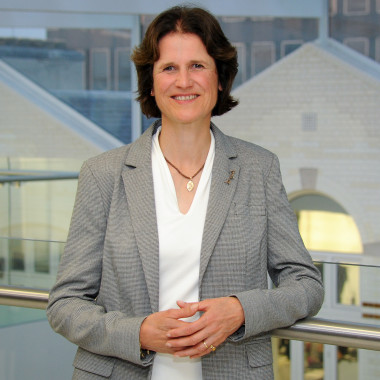
Message from the Chair
Welcome to Activity Alliance’s 2020-21 Impact Report. It has been a year like no other. The COVID-19 pandemic has left its mark on the world and our lives, but none more so than disabled people’s lives. I am immensely proud of the ways Activity Alliance has risen to the challenge and responded with great impact. This report revisits the charity’s most impactful and innovative work from the year.
This year, we used our leading voice and expertise to support organisations across many sectors to deliver sport and activity during a global pandemic. Following the first lockdown in March 2020, we repurposed many resources to support disabled people to be active at home. When life moved online, we educated providers on the digital divide and importance of delivering activities that are accessible to everyone. As sport and leisure began to return, we led the calls for activities and venues to reopen in an inclusive way. We issued clear guidance to help providers with this and held an influential event with disabled people and some of the country’s key sporting leaders.
I have been taken aback by the dedication and hard work of our staff team, our members, our partners, and our volunteers. Living and working under pandemic conditions has been difficult for many, but it has not dampened our collective efforts. This commitment has been bolstered by the supportive and flexible approach of our funders, who have encouraged us to adapt and innovate as needed in a challenging and changing landscape.
I want to take this opportunity to thank you for working tirelessly to improve disabled people’s lives. And now, as we all look to a brighter future, Activity Alliance’s sole focus is to build a better future and achieve fairness for disabled people in sport and activity.
Sam Orde
Chair

Building a better future for disabled people
Where do I begin? First and foremost, myself and everyone at Activity Alliance will always remember this year for the devastating impact the COVID-19 pandemic has had on disabled people’s lives. However, we will also remember it for the creative and extensive responses from our team, our members, our funders, and our partners. Throughout this report, I hope you can take in the positive impact made, whilst never forgetting the stark and challenging reality we now face post pandemic.
This year, we were determined to intensify our role as an advocate and champion for disabled people in sport and activity. It is not fair that disabled people are the least active in our society. Nor it is right that disabled people have felt forgotten and overlooked throughout this crisis.
In direct response, we strengthened our strategic purpose, and set ourselves and others a challenging aim. That is to close what we call the fairness gap – the gap between disabled and non-disabled people’s activity levels. Together, we will do this by driving attitude change in society and embedding inclusive practice into organisations that deliver sport and activity.
The benefits of being active are clear. It matters for everyone’s physical and mental health and has enormous impact on our daily lives. So, our message is now clear-cut too. It is never acceptable that disabled people should not reap these benefits.
Even before this national crisis, disabled people faced real challenges in accessing opportunities to be active. But we were making progress in closing the fairness gap. Now, we are concerned about a huge drop in activity levels and widening inequalities, creating new barriers in sport and activity for disabled people.
As we look to recover, rebuild, and thrive together once again, Activity Alliance will draw from all we have learned this year and be more determined than ever to succeed in our work.
If we do not act now, we will witness inequalities widen even further, or unthinkably they may become irreversible. Prioritising disabled people is the only way to prevent this from happening. We are committed to building a better future where every plan, every action, and every penny spent is tested against its impact on disabled people’s activity.
Barry Horne
Chief Executive
Achieving Fairness, our 2021-2024 Strategy
This year, following consultation with our members and partners, we unveiled our new organisational strategy and plans to achieve fairness for disabled people in sport and activity.
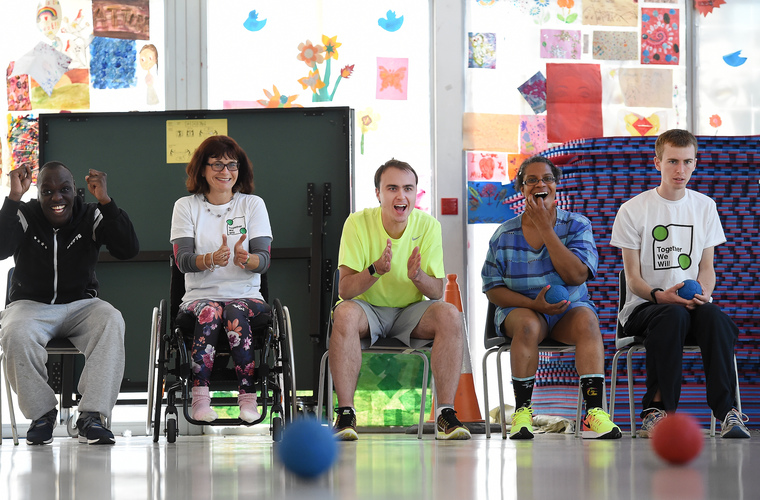 Disabled people are the least active group in society, and challenges brought on by the COVID-19 pandemic have made things worse. Our new strategy is ambitious and recognises the need to tackle inactivity and inequality head on. Everything we do will be shaped by our determination to overcome pandemic setbacks and prioritise disabled people’s inclusion in sport and activity.
Disabled people are the least active group in society, and challenges brought on by the COVID-19 pandemic have made things worse. Our new strategy is ambitious and recognises the need to tackle inactivity and inequality head on. Everything we do will be shaped by our determination to overcome pandemic setbacks and prioritise disabled people’s inclusion in sport and activity.
Sport and activity play an important role in our nation’s health so must be a level playing field for everybody. That’s why we have refreshed our vision to be:
Fairness for disabled people in sport and activity
Our ambition is to close the fairness gap – this is the gap between disabled people’s levels of inactivity and that of non-disabled people.
We know we cannot achieve fairness alone. We will work with multiple stakeholders to make our vision a reality. Collaboration and innovation with organisations and individuals across various sectors will be key to removing barriers and unlocking the value of sport and activity for disabled people.
Over the next three years and beyond, Activity Alliance will continue to push for inclusion to be at the heart of all plans in sport and activity. We will not settle until every disabled person can reap the same physical health, mental health, and social benefits as non-disabled people.
Embedding inclusive practice into organisations
This year, much of our work has focused on supporting organisations to deliver an inclusive response to COVID-19. Our expertise, high-quality insight, and resources have empowered them to embed inclusive practice and prioritise disabled people at all levels.
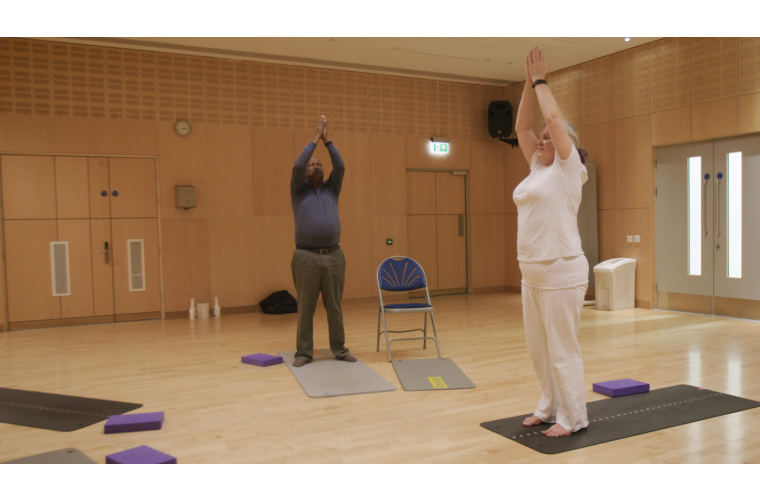 Inclusion guidance released for sport and leisure return
Inclusion guidance released for sport and leisure return
In June 2020, as opportunities to be active returned, we issued clear guidance to the sport and leisure sector on how to reopen in an inclusive way. Our 'Reopening Activity: An inclusive response resource' supported activity providers and venues to create welcoming and accessible environments for disabled people. The guidance was published in consultation with strategic partners across sport, leisure, and disability equality. It complements and builds on other guidelines from government, Sport England, professional associations, and governing bodies.
As the leading voice for disabled people in sport and activity, we are determined that disabled people will not become the pandemic’s 'forgotten group'. This guidance helps sport and leisure providers play their part towards a fairer society and address the many barriers that have existed for far too long. Our ambition is for activity providers to consider and use our inclusive response guidance as part of their ongoing commitment to inclusion.
"Inclusive activity can make a big difference to disabled people’s quality of life. It is good for everyone’s physical and mental health and benefits our economy.
"Organisations should embrace the opportunity and commit to be more inclusive than ever before. Use this moment in time to rethink and readjust things for the better."
Barry Horne, Chief Executive
Read our guidance - Reopening Activity: An inclusive response
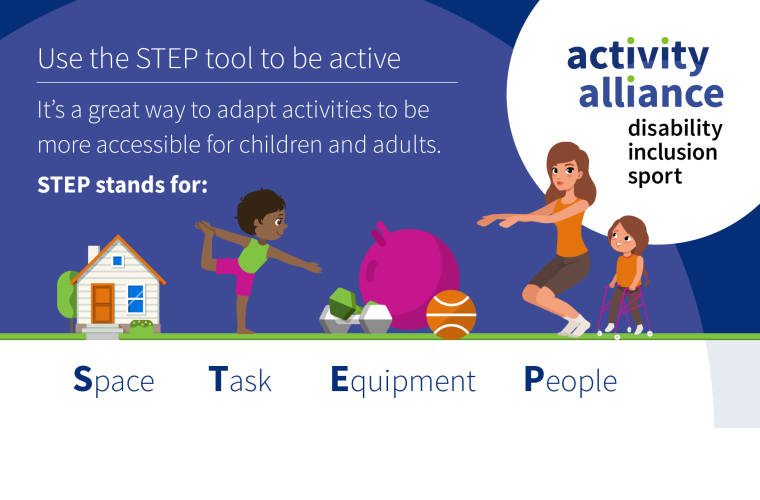
STEP resources support home activity
In April 2020, we released our STEP inclusion resources to help the nation stay in and work out. With concerns about isolation and rising inactivity levels during lockdown, we recognised the need for accessible home activities. Many activity providers and families have used the STEP resources including Manchester United Foundation. They incorporated STEP into their Play Safe resource to support football coaches to deliver sessions in a fun way while adhering to safety and social distancing regulations.
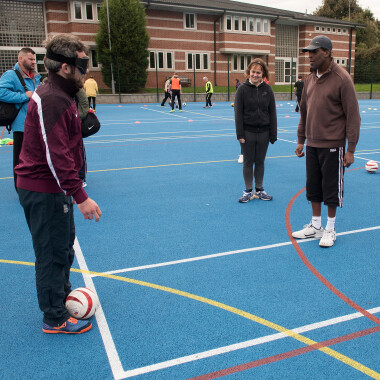
"The STEP model is vital in everything we deliver across the Foundation, ensuring sessions are inclusive and easily adaptable. It is something we ensure not only staff, but participants completing coach development courses implement."
Alex Wilson, Disability and Inclusion Manager, Manchester United FoundationResearch reveals pandemic's true impact on disabled people's activity
![]() In February 2021, we released our yearly research report titled 'Activity Alliance Annual Disability and Activity Survey 2020-21'.
In February 2021, we released our yearly research report titled 'Activity Alliance Annual Disability and Activity Survey 2020-21'.
In its second year, the survey has played a crucial role. Supported by Sport England and involving just under 2,000 respondents, the study presents in-depth findings on the impact of the COVID-19 pandemic on disabled people’s attitudes towards and involvement in physical activity.
The survey findings show that the pandemic has not only widened existing inequalities for disabled people, but it has also created new ones too. Twice as many disabled people felt that coronavirus greatly reduced their ability to do sport or physical activity compared to non-disabled people. A fear of contracting the virus, the impact on their health, and less support and a lack of space to exercise at home, have all become significant barriers to activity for disabled people.
Moving forward, we will use this robust insight to minimise the long-term impact of COVID-19. Working with our members, partners, and wider stakeholders we will reinstate the positive progress that was being made to close the fairness gap between disabled and non-disabled people’s activity levels prior to the pandemic.
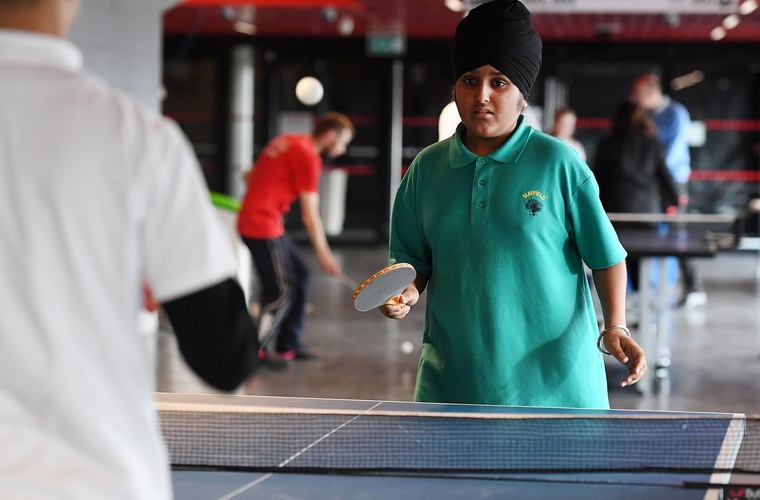
Regular research snapshot informs sport and leisure sector
Throughout the year, our research team released six snapshot reports to help sport and leisure organisations understand the impact of COVID-19 on disabled people’s lives. This insight has been an essential component of our support package for organisations.
Delivering inclusive communications in a digital world
![]() The importance of inclusive and accessible digital communications skyrocketed this year, and our team was quick to respond. We worked closely with many national and local organisations to promote the value of digital accessibility and inclusion.
The importance of inclusive and accessible digital communications skyrocketed this year, and our team was quick to respond. We worked closely with many national and local organisations to promote the value of digital accessibility and inclusion.
Our members and partners called upon our inclusive communications expertise and guidance to reduce the digital divide and reach more people through their digital platforms. Informing and upskilling organisations on how to deliver accessible online activity sessions became a key role for us. We were proud to support Sport England and ukactive embed inclusive practice into their high-profile campaigns, Join the Movement and Fit Together. We were also invited to speak about digital accessibility on several public webinars, including for London Sport and the UN Global Compact initiative.
We delivered bespoke inclusive communications training for several national bodies throughout the year. This included live virtual workshops for UK Coaching and the Lawn Tennis Association, and a recorded workshop for Youth Sport Trust to use to upskill their school games workforce.
Find out more about our marketing and communication services
-
Short films top-up inclusive communications resource bank
In October, we created six short videos to support organisations to use digital platforms to put on activities during the pandemic.
Empowering organisations to tackle inequalities
This year, we have worked tirelessly to provide organisations with the support, training, and insight they need to tackle the long-standing inequalities disabled people experience in sport and activity. This included developing new resources, hosting virtual learning events and forming new partnerships in the leisure sector.

Inclusive activity: Taking a person-centred approach
In August, we created an in-depth resource on the concept of 'intersectionality' in relation to disabled people. It explains how different personal factors come together to influence our lives and activity levels. The resource challenges sport and leisure organisations to look beyond standard demographics and take a person-centred approach when planning for and delivering opportunities.
-
New engagement factsheet on supporting low-income households released
In July, we released a new resource on how deprivation affects some disabled people's lives and their opportunities to be active.
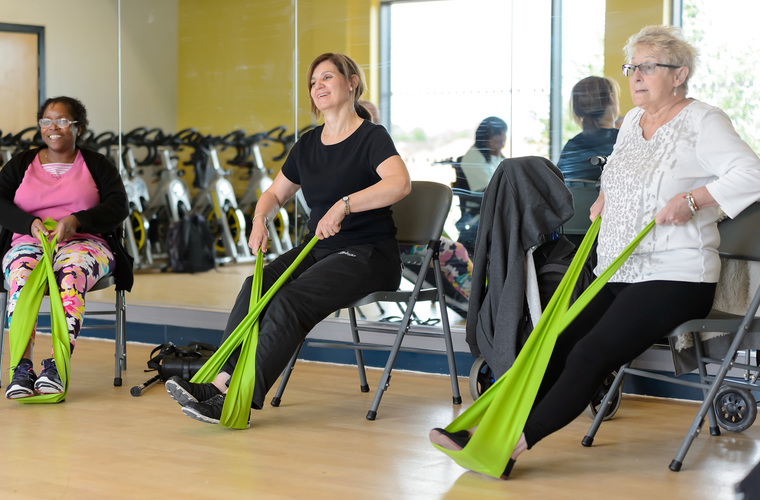
Online events strengthen national and regional conversations
Activity Alliance hosted its first ever national engagement forum in October. Headed up by our partnerships team, the event brought national bodies Sport England, Disability Rights UK, and Sported together with representatives from many of our regional partner and member organisations. 125 people from more than 100 organisations attended the online forum.
-
Yorkshire event explores barriers and benefits to being active
Activity Alliance and Public Health England Yorkshire and Humber hosted an online conference on tackling inequalities in sport.
Lex Leisure puts inclusion at the heart of its venues
To mark National Fitness Day in September 2020, Activity Alliance launched a refreshed online customer service eLearning course to empower workforces within leisure and sports organisations. The course - 'Delivering an excellent service for disabled customers' is supported by London Marathon Charitable Trust, Swim England, and Everything eLearning.
Following the launch, we partnered with Lex Leisure to improve the service and experience for disabled people across their 30 leisure venues in England and Wales. As part of their commitment to inclusion, Lex Leisure adopted our eLearning course as mandatory training for 300 employees, including all senior management staff.
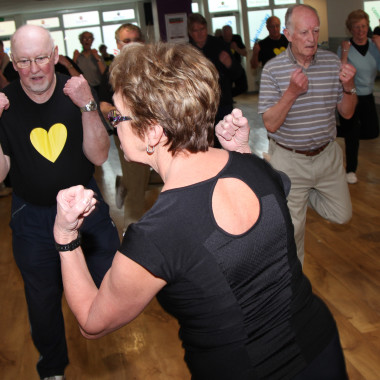
"We’re incredibly proud of our commitment to supporting the communities in which we operate. This course will not only seek to build on that, but it will give staff the tools and information that they need to ensure that we are delivering a positive and engaging experience for all our visitors at every Lex Leisure facility."
Kim Arrenberg, Chair, Lex LeisureTackling inequalities in education
Since 2019, Activity Alliance has worked with a consortium of partners to support the delivery of Sport England’s Secondary Teacher Training Programme. The programme aims to improve the experiences of school sport and physical activity among young people aged 11-18 by challenging and developing the way schools value and deliver PE. Sport England commissioned us to develop and implement an evaluation framework.
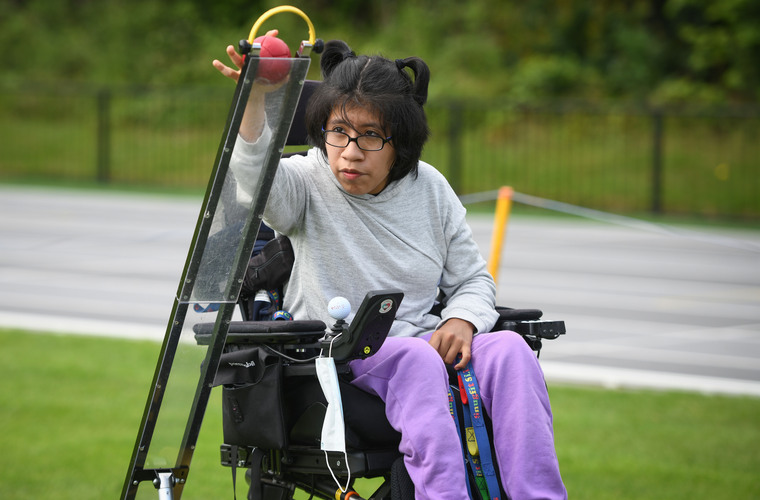
This year, we have supported the programme by gathering valuable insight on the inequalities that exist within PE provision in secondary schools. This includes long-standing inequalities and new barriers created by COVID-19. Working with our evaluation partner, Sheffield Hallam University, we have gathered over 8,000 responses from disabled pupils and pupils with additional needs on their attitudes and behaviours towards PE and school sport. This insight is being used to inform inclusive practice and bring about whole system change in schools across England.
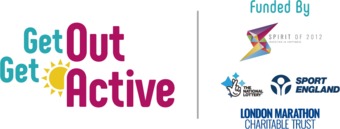
Keeping people connected with Get Out Get Active
The COVID-19 pandemic has had a significant impact on the activities our Get Out Get Active (GOGA) programme has been able to provide this year. Despite this uncertainty, our partners rose to the challenge and continued to support disabled and non-disabled people to stay connected and keep active together.
Across the country, GOGA partners developed creative and innovative ways to engage participants in social and physical activities. From delivering sports equipment to individuals at home, to sending out exercise postcards and even calling participants for a supportive chat. Many locations developed a blended offer using both digital and traditional formats for communication and delivery.
In Blackpool, residents received food parcels with table tennis equipment, activity sheets, and how-to-videos to help them keep moving at home. In Bradford, GOGA worked in the heart of the community delivering street Zumba sessions to people on their driveways. While in Grimsby once restrictions eased, Active Humber began delivering socially distanced bowls and croquet sessions in the park for people of all ages and abilities.
"The efforts of the Foundation of Light and Get Out Get Active programme have been amazing. Being able to get active through the online seated exercise sessions, using the equipment in the activity bags, and keeping in touch via online get togethers has helped us massively. We can’t wait to get back to normal, but the GOGA sessions have kept us going."
John and Susan Wilkinson, GOGA participants
These are just a few examples of how the GOGA programme has continued to reach some of the country’s least active communities this year. We are extremely proud of the dedication and determination that all our local and national partners have shown throughout the COVID-19 pandemic.
Visit GOGA's website for more information about the programme
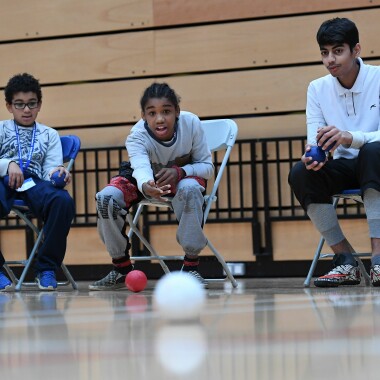
"GOGA reaches people who all too often are left behind. Now in these really tough COVID-19 days, GOGA is needed even more than before."
Mike Diaper, Director Executive Director for Children, Young People and Tackling Inequalities, Sport England-
Get Out Get Active partners come together for fourth national event
In September, we took GOGA's fourth annual conference online and there was plenty of GOGA spirit in the virtual conference room.
Online inclusion training keeps people learning
This year, all face-to-face training opportunities delivered by Activity Alliance and our partners were stopped due to COVID-19 restrictions. In response, we developed several new online learning opportunities so organisations, schools, and individual sport and healthcare professionals could continue to access high-quality inclusion training in a new way.
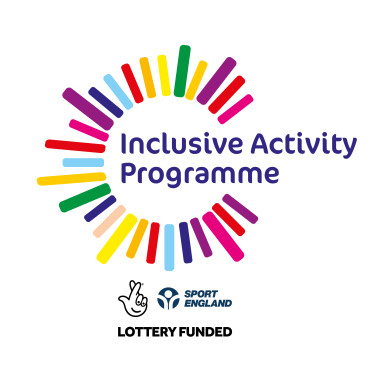 In September 2020, we launched our Inclusive Activity Programme online classrooms in partnership with UK Coaching. Based on our face-to-face workshops, the online classrooms offer a live and interactive learning experience led by one of our expert inclusion tutors. During each session our trainees learn about the key principles of inclusion and how to adapt activities using the STEP tool and Activity Inclusion Model. From September 2020 to March 2021, 370 people have taken part in an Inclusive Activity Programme online classroom.
In September 2020, we launched our Inclusive Activity Programme online classrooms in partnership with UK Coaching. Based on our face-to-face workshops, the online classrooms offer a live and interactive learning experience led by one of our expert inclusion tutors. During each session our trainees learn about the key principles of inclusion and how to adapt activities using the STEP tool and Activity Inclusion Model. From September 2020 to March 2021, 370 people have taken part in an Inclusive Activity Programme online classroom.
To accompany the online classrooms, we launched a short, fun, interactive eLearning module in January 2021. It provides beginners with a great introduction to the programme. It is also a useful way for those who have already taken part in a workshop or online classroom to refresh their knowledge on the key principles of inclusive activity. More than 1,100 people completed the free module in the first three months of delivery (January-March 2021).
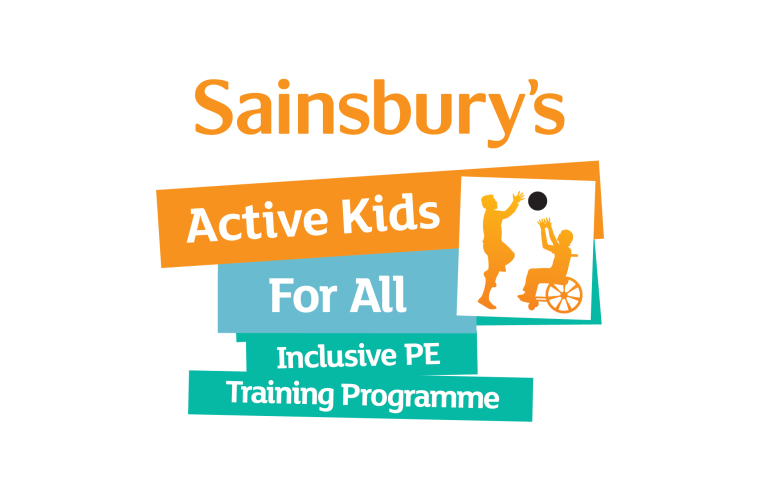
Supporting schools to deliver high-quality PE
It has been a hugely challenging year for all teachers, school staff, and children and young people. Activity Alliance has worked hard to support schools to continue to deliver high-quality PE opportunities, both virtually and in-person during the pandemic. In partnership with our home nations counterparts, Youth Sport Trust, and British Paralympic Association, we set up online classrooms for Sainsbury’s Active Kids for All Inclusive PE Training Programme. This enabled over 2,500 teachers and trainee teachers to continue to access specialist inclusion training whilst face-to-face delivery was not possible.
Changing attitudes towards disabled people in sport and activity
This year, we have used the power of sport and activity to break down societal barriers and change attitudes towards disabled people. There is still a long way to go but we will not stop until disabled people feel they belong in all aspects of sport and activity.
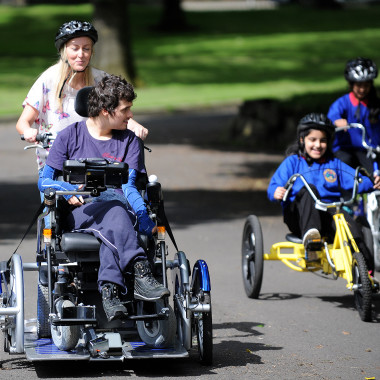 Activity Alliance leads calls for an inclusive response to COVID-19
Activity Alliance leads calls for an inclusive response to COVID-19
In November 2020, Activity Alliance streamed its first ever live virtual event - A collective movement: An inclusive response to COVID-19 in sport and activity. More than 500 people watched live as disabled people and key leaders called for more inclusive and accessible solutions in sport and activity as the nation recovers from the pandemic.
Prominent sport sector leaders Tim Hollingsworth, Sport England Chief Executive, and Huw Edwards, ukactive Chief Executive, joined our Chief Executive, Barry Horne to talk about the need for immediate action. Baroness Tanni Grey-Thompson, our Honorary President and ukactive Chair recorded a special interview for us and Marc Woods, Chair of CIMSPA hosted the packed event.
The event featured powerful testimonies from disabled people about their ability and confidence to be active during the pandemic. Channel 4’s The Last Leg co-host, Alex Brooker spoke openly about his experience before and during lockdown. While Janet and her support worker, Sarah, along with disabled fitness instructor, Sam, described the negative effects restrictions and leisure centre closures have had on their physical health, social interactions, and employment.
In the closing session each leader outlined their commitment to deliver an inclusive response to COVID-19 and called on all viewers to play their part in achieving fairness for disabled people in sport and activity.
Find out more and watch the full event here
Championing disabled people's voices and experiences
In March 2020, following the announcement of COVID-19 restrictions and the first national lockdown, Sport England launched Join the Movement – a national campaign to help us all find ways to get active in and around our homes. During this time, we were especially mindful that many disabled people and people with long-term health conditions would feel isolated and less active. So, as Sport England’s expert partner on inclusion, we co-created a series of blogs with disabled people to support the Join the Movement campaign.
"My family have always supported me to be active and it’s no different during the lockdown period. We encourage each other and have fun together. It is important to stay active during these strange times. Playing football and tennis helps to take my mind off everything. It eases my anxiety on days when I am feeling low."
George, Activity Alliance blogger - Read George's blog
Our #StayInWorkOut blog series explored the different ways disabled people got moving and stayed active during lockdown. Each blog captured disabled people’s experiences and shared their advice to others wanting to do the same. Some blogs featured mini home videos of individuals taking part in their favourite activities. As COVID-19 restrictions eased, we adapted our blog content to reflect the latest guidance on sport and activity.
"Getting on my bike every day has been really tough mentally, but it has given me a purpose during lockdown. Each day is an achievement and afterward I always feel happy. This year has been less about how far and fast I can cycle, and more about getting up, washed and dressed and getting on that bike."
Shona, Activity Alliance blogger - Read Shona's blog
Eye-opening videos capture disabled people's feelings
To mark International Day for Disabled People on 3 December 2020, we created a series of COVID-19 awareness videos for social media. These powerful videos captured disabled people’s raw feelings about life during the pandemic and their thoughts on what needs to change so they have a better experience of sport and activity in the future.
Raising our profile to advocate and influence change
In October 2020, we began a long-term project to help maximise Activity Alliance’s visibility and brand positioning. We appointed media agency, Run Communications to support us in raising the charity’s profile through media relations, key messaging development, and media training.
Working with Run Communications, we grew our plans to position Activity Alliance as the leading voice for disabled people in sport and activity. We aim to grow the charity and its lead spokespeople as thought leaders on inclusive practice. This work has been pivotal to ensuring that disabled people were not side-lined by the sport and leisure sector during the COVID-19 pandemic.
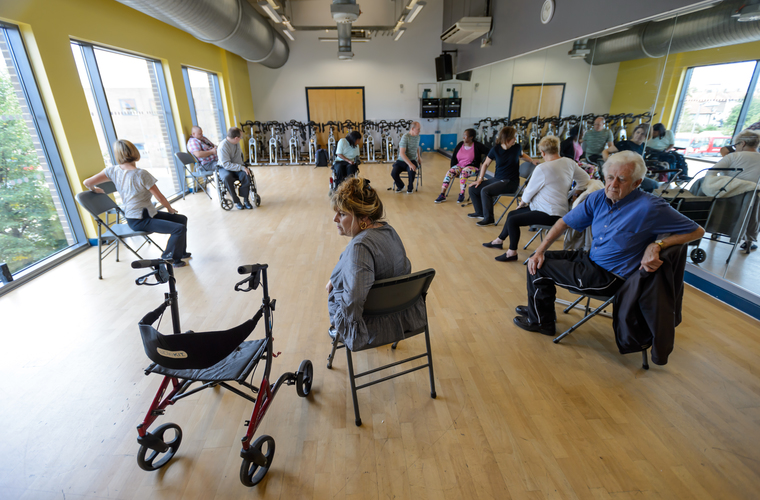 Since October, we have secured national media coverage for several of our key milestone events. This includes the release of our Annual Disability and Activity Survey results in February 2021 which featured in The Telegraph, Guardian, Metro, BBC Radio 4, BBC Sport and Sky Sports News.
Since October, we have secured national media coverage for several of our key milestone events. This includes the release of our Annual Disability and Activity Survey results in February 2021 which featured in The Telegraph, Guardian, Metro, BBC Radio 4, BBC Sport and Sky Sports News.
In March 2021, our Chief Executive, Barry Horne, was invited to speak at the House of Lords Select Committee on the National Plan for Sport and Recreation. This followed our written evidence submission to the Department of Digital, Culture, Media, and Sport. Barry joined other sector leaders to give evidence on disability sport, accessibility, and inclusivity. The Committee explored accessibility of sports facilities and opportunities, as well representation of disabled people in leadership positions in sport and sports’ governing bodies.
Through our thought leadership communications and media engagement activity we have laid the foundations for a strong advocacy platform. Now, moving forward we will use our position as leaders to influence investment and policy at the highest level. Activity Alliance’s role has never been more important. We will not rest until we achieve fairness for disabled people in sport and activity.
Organisational wellbeing
Organisational wellbeing is key to our success at Activity Alliance. Throughout this unprecedented year, we have focused on building a strong organisational culture and prioritised the physical and mental wellbeing of our colleagues, members, and supporters.
Activity Alliance adopts flexible working approach
The health and wellbeing of our colleagues, members, and supporters matters the most to us. So, like many organisations across the world, Activity Alliance moved to remote working following government guidance on COVID-19 in March 2020. To support staff during this difficult time we introduced several wellbeing initiatives and adopted a flexible working approach. We also ran staff engagement sessions on self-care and personal resilience with leadership and resilience expert Rene Barrett.
Throughout the year, we checked-in regularly with our staff team to understand their feelings about COVID-19 and thoughts on future working practices. Moving forward, Activity Alliance will look to adopt a hybrid working model, providing staff with greater autonomy to combine onsite and offsite work in their schedule.
New membership programme builds a movement for change
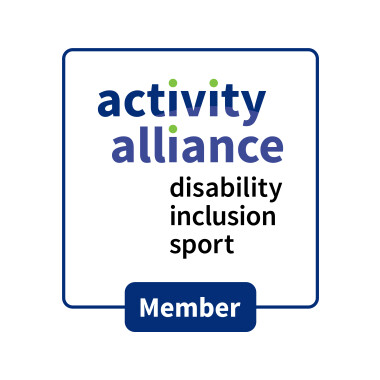 Our members are an important part of our organisation. Without them we cannot achieve our vision. This year, we commenced a new membership programme to support our ambition of building a powerful movement for change in sport and activity.
Our members are an important part of our organisation. Without them we cannot achieve our vision. This year, we commenced a new membership programme to support our ambition of building a powerful movement for change in sport and activity.
We know there are countless people and organisations out there working to improve disabled people’s lives. The new programme brings them together through a shared commitment to support our vision. In return, we commit to supporting members to embed inclusive practice into their organisations and to feature their names on our movement lists in our campaigns and advocacy work.
Click here for more information on Activity Alliance membership
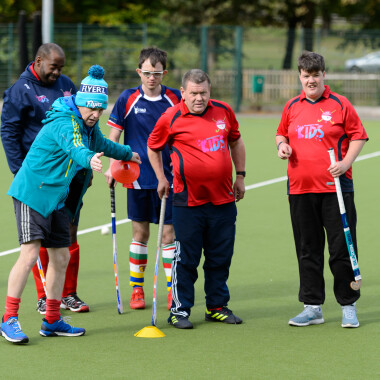
"Our members help to shape our strategic direction. They work alongside us to embed inclusive practices across various sectors and change attitudes towards disabled people in sport and activity for the better."
Barry Horne, Chief ExecutiveNew appointments enhance our strategic leadership
This year, we made two appointments to our executive team to strengthen both strategic and operational leadership across the organisation.
Ray Ashley took on the role of Director of Partnerships, following his time as our Head of Engagement. A long-serving member of the Activity Alliance team, Ray leads on our work to address inequalities through collaboration, partnerships, and programmes.
We also welcomed Kirsty Clarke to the organisation as our new Director of Innovation and Business Development. Kirsty has 20 years’ experience of working in sport development with a particular focus on inclusion and equality. Her role manages strategic delivery of research and insight, marketing communications, events, and corporate services.
At Board level, we were delighted to appoint Lucy Moore to our Board of Trustees in October 2020. Lucy has 20 years of sport and leisure experience and is currently Head of Professional Workforce at Sport England. Both her personal and professional passions align closely with Activity Alliance’s ethos. At the same time, we also recognised two trustees stepping down this year after successful terms with the charity. A big thank you and best wishes to Maria Palmer and Tracey McCillen from everyone at Activity Alliance.
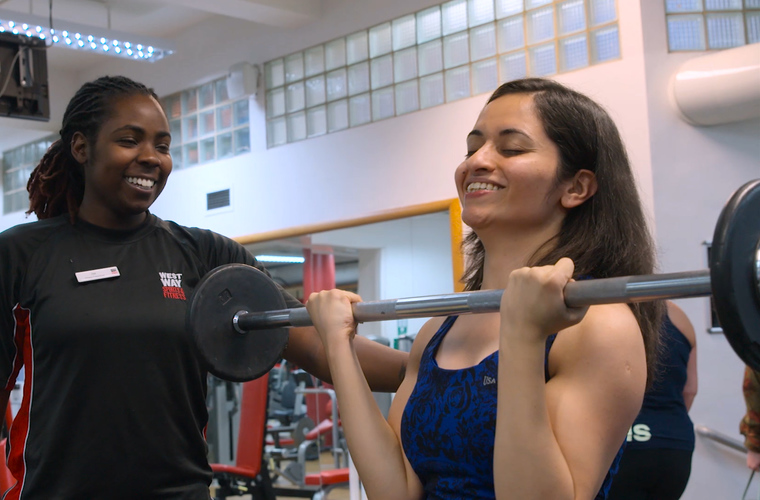 Diversity and inclusion in the workplace
Diversity and inclusion in the workplace
We are committed to championing equality and diversity in all aspects of employment and in the services we provide. We strive to build a diverse and inclusive culture that recognises and reflects all our stakeholders.
We use the social model of disability in our approach to all work. However, we know that some definitions used for protected characteristics can challenge this model, in particular the disability definition. The social model emphasises that it is society and barriers created by society that disable people, not a person’s impairment or condition. We recognise this difference in our diversity profile by presenting two figures for disability. Figure one presents the percentage of people with an impairment and/or long-term health condition. Figure two presents the percentage of people with a physical or mental impairment that has a 'substantial' and 'long-term' negative effect on everyday life. Figure two aligns closely to the definition of disability under the Equality Act 2010.
We will continually review our inclusive processes and practices to ensure we maintain equality and diversity in all our activities. As the leading voice for disabled people in sport and activity, Activity Alliance must represent, and value all disabled people.
These are the findings from our recent equal opportunities surveys with employees and Board members.
Activity Alliance diversity profile - (percentage of total number)
- Figure 1: People with an impairment, long-term health condition or illness - 44% in 2021 (47% in 2020)
- Figure 2: People with a physical or mental impairment that has a 'substantial' and 'long-term' negative effect on ability to do normal daily activities - 16% in 2021 (25% in 2020)
- Figure 3: Female - 69% in 2021 (66% in 2020)
- Figure 4: Lesbian, gay, bisexual, and transgender - 14% in 2021 (9% in 2020)
- Figure 5: From an ethnically diverse background - 9% in 2021 (12% in 2020)
Financial wellbeing
Activity Alliance’s total income for the financial year 2020-21 amounted to £1.98m. A decrease of £1.73m on the previous year. This decrease reflects the flexibility of funding to reprofile expenditure to respond to the challenges of delivering community-based activity during COVID-19 restrictions. This action was crucial to maintain the delivery of our programmes.
Sport England exchequer investment continues to be one of the charity’s largest funding contributions, and we’re proud to be considered one of their expert partners. Their financial backing enables us to deliver programmes and services that embed inclusive practice into organisations and change attitudes towards disabled people in sport and activity.
On 1 April 2020, we launched phase two of our Get Out Get Active (GOGA) programme and welcomed London Marathon Charitable Trust and Sport England National Lottery as funding partners, alongside founding funder Spirit of 2012. This year, they provided a combined total of £395k for GOGA programme delivery in 21 locations across the UK. GOGA phase two is a three-year programme concluding in December 2023.
Monies received from Sainsbury’s and Sport England National Lottery fund enabled us to continue our work to achieve fairness for disabled children and adults in schools and communities. We utilised these funds to provide accessible online training opportunities for our Inclusive Activity Programme and Sainsbury’s Inclusive PE Training Programme. We also continued to support the roll out of Sport England’s Secondary Teacher Training Programme.
Due to the COVID-19 pandemic and restrictions there was no significant fundraising activity involving the general public in 2020-21. During the summer months of 2020, we made use of the Coronavirus Job Retention Scheme for our two events staff. This action was required to protect our budget as no external events could take place nor income for events be received.
Activity Alliance income 2020-21
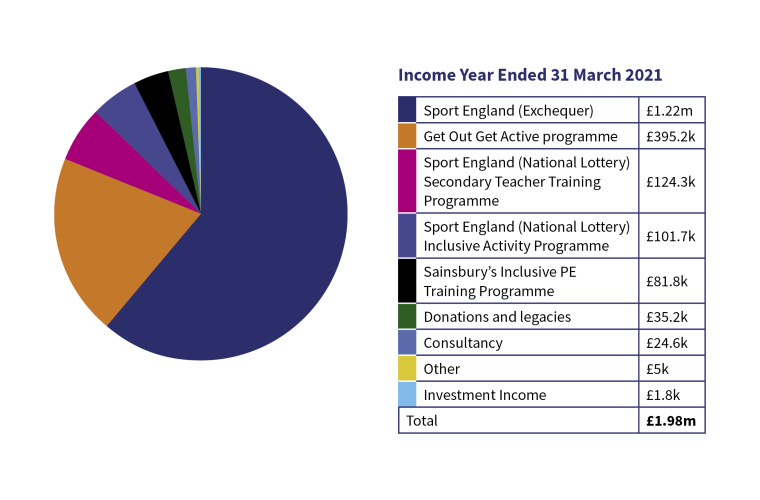 Activity Alliance expenditure 2020-21
Activity Alliance expenditure 2020-21
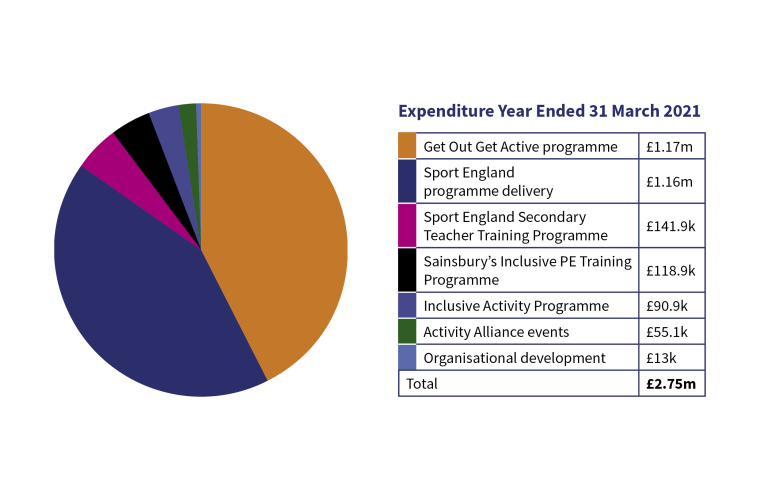
Impact Report 2020-21 accessible formats
Here you will find a summary of our Impact Report 2020-21 in a number of accessible communication formats.
British Sign Language translation
This video provides a summary of our Impact Report in British Sign Language. It also features captions and an audio voiceover.
Watch impact report summary BSL video
Easy read summary
We have also provided our Impact Report summary in easy read format. Easy read uses pictures to support the meaning of text and gives the essential details without a lot of background information.
View Activity Alliance Impact Report 2020-21 easy read summary
Accessible Word version
View accessible Microsoft Word version of Impact Report 2020-21
